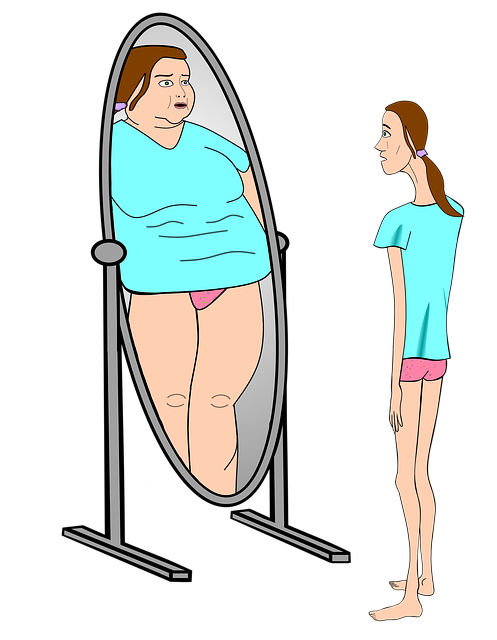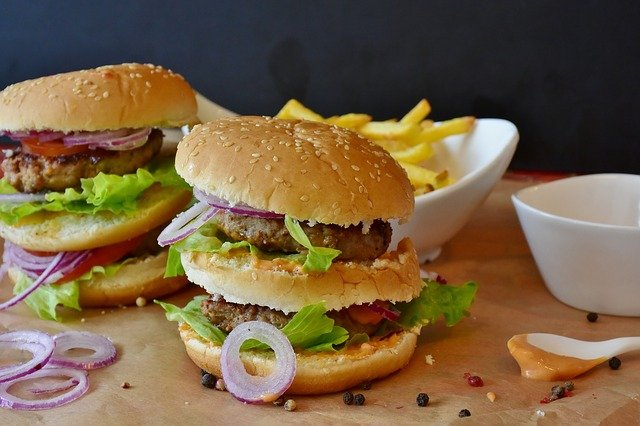Eating disorders affect many different people in many different ways. Eating disorders range from binge eating, poor eating habits, fussy eating and other issues from a poor relationship with food through to bigger issues such as anorexia and bulimia. Hypnotherapy can help with all of these food-related issues.
If you have never used hypnotherapy before you can read more about what hypnosis is here.
Hypnotherapy is fast becoming the go-to tool for people to change their life with regarding their physical and mental health. It is used for a wide range of health issues such as losing weight, motivation to exercise, health anxiety, breaking a sugar addiction, fussy eating, not being able to eat fruit or vegetables and other eating disorders.
Understanding Eating Problems
Learning to solve diet problems is hard. We can’t go back: food has to happen every day. It is necessary for survival. However, some people have an intricate relationship with food. When these relationships are damaged, the way in which we interact with food can become a dangerous coping mechanism for dealing with difficult emotions or circumstances. Factors contributing to this may be poor self-esteem, anxiety or lack of control. Other influences include genetic factors, societal pressure and personality.
Binge eating disorder is a serious mental health problem with a high mortality rate. It is a form of binge eating that happens regularly (e.g., every day), and has no real excuse. Binge is defined as an episode of overeating in which the person consumes an enormous amount of food in a short time period, usually within three hours.
A more severe subtype of this disorder is called bulimia nervosa which can lead to dehydration and other health issues if not treated quickly.

Hypnotherapy for Eating Problems
Hypnotherapy is an excellent option for those struggling to eat too much food for short periods. Often called binge-eaters. Some people feel forced to eat and sometimes they’re afraid to eat. Uncover the past and influence the way in which you relate to your food will be done using the analytic hypnotherapist or regression technique. Those with eating problems often feel trapped in cycles of binging and purging. Hypnotherapy can help break a pattern by making consciously positive advice.
Overcoming eating disorders is difficult work, but hypnotherapy can help with all types of eating disorders, including poor eating habits, fussy eating and other issues from a poor relationship with food.
A recent study on over 450 people found that people who have a BMI of at least 25 were twice as likely to suffer from an eating disorder than those with a BMI of less than 20.
Do I Have an Eating Disorder?
Eating disorder is a serious condition where eating disorder can affect your physical, mental or emotional wellbeing. While most often affect women between 14 and 17 years old, they can affect anybody. Using early detection may increase the odds you are recovering quickly. Usually, a person who suffers from an eating disorder has to be consulted by their GP about their condition.
Hypnosis is a powerful tool for eating disorders because it helps patients to make more conscious decisions about food and to counteract the negative beliefs they may have about food.
The most common psychological disorders that are treated with hypnosis are anorexia nervosa, bulimia nervosa and binge eating disorder.
If you suspect that you may have an eating disorder, it is recommended that you seek help from a mental health professional support person such as a hypnotherapist that works with eating disorders and healthy eating habits.

Poor Eating Habits and Eating Disorders
People often ask me what hypnosis can do for them and if it will help with their eating habits.
What I have discovered is that hypnosis has a lot of different potential applications in the treatment of eating disorders (ED) but there is no one single hypnotherapy technique that works for all EDs. The best way to learn about this is to find someone who has already tried several different techniques and then look at how well each technique worked for that person.
It’s also important to note that there is a difference between “hypnosis” and “hypnotherapy”. The former refers specifically to the use of hypnosis in order to alter a person’s mind/body relationship (i.e., hypnotic suggestions), whereas “hypnotherapy” refers specifically to the use of hypnosis as a treatment for physical ailments such as asthma, headaches, or panic disorders.
Working with a hypnotherapy practice that specialises in helping people with eating disorders, mental health conditions and changing eating habits such as emotional eating, disordered eating, picky eating, stop eating unhealthy foods or ARFID.
Beating Cravings
Telling you how much I crave a particular food or drink can change my craving for it. If we ate wholesome foods, we noticed our cravings increased. Like a normal diet, consciously eating doesn’t limit your ability to respond to cravings, but you also start to understand what causes your craving. Is there a reason for consuming something? Why do people eat so much? every time you snack it raises awareness, which helps you understand what causes you to overeat.
We often think of dieting as something only women engage in. But the dieting experience is quite different for men. It’s not uncommon for men to obsess over their weight, cut back on calories and carbs, or exercise excessively. It’s also common for men to want to eat more than women do but struggle with the same or similar issues like body image, anxiety or depression.
Men are also more likely than women to feel that they need help controlling their weight. And in fact, eating disorders affect both sexes equally — though men are much more likely than women to be diagnosed with eating disorders.
What does this mean for you? The good news is that hypnotherapy can help you overcome all types of eating disorders and poor food habits and improve your relationship with food. You may be surprised by how easily hypnosis can make you crave healthier food choices instead of foods that make you feel bad – even just a few minutes after hypnosis!

Food Portion control
One client told me he had to blindfold himself at night to concentrate on his food. Yes, it was unusual, but it shocked the young man’s face that he only finished around half of the food he weighed. What your brain is trying to think is not what your body should have. The Leeds Hypnotherapist recommends eating only when it feels good. Instead of trying to drink a lot, you should try to enjoy the food to feel the satisfaction. Even at a social event, it is possible to ensure the maximum intake of food is what the body needs.
If you suffer from eating disorders, or other issues from a poor relationship with food, you may have experienced the phenomenon of being “treated” with hypnotic suggestion.
The basis of hypnotherapy is the idea that if you are keen to heal yourself, you should use a hypnotherapist as your partner.
It’s not just about suffering in silence and hiding behind an excuse for why we can’t be seen at work, it’s also about healing ourselves. The hypnotist is your guide and therapist to help you experience the world in a way that will suit you best.
Binge eating
Binge eating disorder (BED) is a mental health condition characterized by frequent, uncontrolled eating. It is the most common type of eating disorder, affecting one in five people over the age of 13. Most people with BED have been severely affected by their eating habits before they became aware of the disorder.
BED began as a psychiatric diagnosis in the late 1950s and early 1960s, and only recently is it becoming recognized as a distinct disorder, although it has long been known that BED can affect children.
While some patients may also suffer from other mental health disorders such as depression or anxiety, BED stands out for its extreme weight loss and binge-eating episodes – which can last for hours at a time – in addition to other symptoms of disordered eating such as poor self-image and bingeing after meals.

Emotional eating
Emotional eating is when someone eats in order to stop feeling certain emotions. They may eat to relieve boredom or stress. They may also eat in order to not feel sad, guilty, worried, etc.
If someone wants to lose weight, they might overeat after eating certain foods that aren’t allowed on their diet. Their self-esteem takes a knock and so they start comfort eating in order to make themselves feel better.
A cognitive hypnotherapist can help you to overcome emotional eating habits using a wide variety of tools and techniques. We will look at the root causes of why you are struggling with your diet and change your mindset to help you to lose weight and be healthy.
Fussy Eating
Fussy eating (or picky eating) tends to come from childhood years. Inside all of us, there is a program that when we are toddlers we should stop eating fruit and vegetables. This comes from the hunter-gatherer times when we used to eat berries from bushes. As a toddler, we aren’t able to work out which are the safe berries and which are the poisonous berries.
To protect our children we developed this program to stop us from eating them for those formative years in order to keep us safe. Sometimes that program doesn’t reverse like it is supposed to around 6 years old. This is where we are classed as having a fussy eating habit.
For some this program stays in place as a way of taking control of our lives. If our world around us is unsteady and we feel uncomfortably like we are having control taken from us, we can take it back through food.
The one thing that a child can control is what and how much it eats!
Improving Your Relationship with Food
Hypnotherapy is a form of psychological therapy that aims to help people with eating disorders. It’s often described as a form of self-hypnosis that helps people regain control over their eating.
Hypnotherapy may be able to help people with anorexia nervosa, bulimia nervosa and other issues from a poor relationship with food. The medical community is beginning to recognise the usefulness of hypnotherapy as a treatment for these conditions.

Working On Your Diet and Eating Right
Eating disorders are a huge problem in the UK. At least one in every five women and one in every twelve men suffer from an eating disorder. These problems can be extremely serious and can lead to even more serious problems like depression, anxiety, self-harm, substance abuse, and suicide.
In 2017 between 7% and 10% of all visits to primary care physicians were reported as having eating disorders. Between 80-90% of these patients had not sought help previously because they did not think their problems were that bad.
Hypnotherapy has been successfully used for decades to treat many types of psychological conditions: it is widely used for anxiety disorders, phobias (spiders, heights, food phobias) and panic attacks, depression and anxiety disorders, learning disabilities (such as dyslexia), attention deficit disorder (ADD) disorder, personality disorders such as antisocial personality disorder (ASPD) or narcissistic personality disorder (NPD), these are just a few examples.
Beating Eating Disorders with Hypnotherapy
Many people have a fear of food and have a hard time eating. But you may not know that hypnotherapy can help you to overcome this fear.
Eating disorders are complex mental health issues that can affect your thinking, emotions and behaviour. If you are suffering from the symptoms of an eating disorder there is no need to be scared of the consequences. Eating disorders can be debilitating and cause even a healthy person to lose control over their life or severely damage their relationships with others.
If you have any other type of eating disorders then hypnotherapy will also help your recovery process because it gives focus to the problem which helps to overcome it completely.
Hypnosis for Food Addiction Near Me in Leeds
The idea of food addiction comes from the idea that eating should be fun, pleasurable and fulfilling. If you feel like you are not getting anything out of it then you are not as hungry as you think. Or, if there is no pleasure or satisfaction in it then it is not as important as you believe it to be.
When we talk about food addiction we are referring to a situation where there is something wrong with the way we control our food intake and how much energy we consume each day. If this happens, then the only way forward is through hypnosis. Hypnosis can help us increase the amount of energy consumed each day by controlling how much energy we consume without having to worry about whether or not we will finish all our meals each day.
No one wants to admit that they have eating disorders but many people hide their problems from both themselves and others because they don’t want to appear weak or vulnerable—and if they do admit it then they fear judgement from other people who will think they are unfit for life.
It’s all about meeting your needs, understanding what your needs are, finding a way of doing this and creating habits that meet those needs through hypnosis. Hypnosis can help us understand our own mental health issues so we can meet those needs effectively, safely and compassionately!
If you are looking for help with food addiction or eating disorders, The Leeds Hypnotherapist is here to help you. You will be able to get a better understanding of where your issues come from and how to resolve them. Whether you want to reach some health goals, lose weight or create weight gain there is an approach that we have for you.

